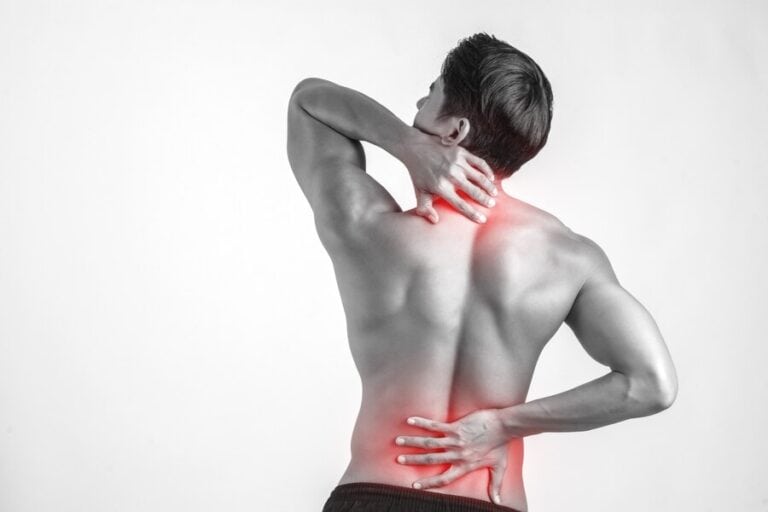Strengthening the Body and Mind in Pain Management
Comprehensive Pain Management is a multidisciplinary approach that addresses pain from various angles, recognizing its complex and interconnected nature. It integrates medical, physical, psychological, and lifestyle strategies to enhance well-being. Embracing Comprehensive Pain Management Solutions is vital in improving the quality of life for individuals experiencing chronic pain. Unlike isolated approaches, pain management recognizes that pain is not solely a physical sensation but a holistic experience. By understanding and addressing the diverse aspects of pain, comprehensive solutions offer a more effective and sustainable path toward relief, empowering individuals to regain control and lead fulfilling lives.
Understanding Pain
Pain manifests in diverse ways, categorized into acute and chronic types. Acute pain, typically brief, warns of injury, while chronic pain persists, impacting daily life. The relentless nature of pain significantly diminishes the quality of life, affecting physical abilities, mental well-being, and overall functionality. From limiting mobility to fostering anxiety, pain’s repercussions are pervasive.
Recognizing the intricate relationship between physical and mental health, comprehensive approaches become imperative. By addressing pain comprehensively, encompassing its physical, emotional, and psychological aspects, individuals can break free from its cyclical impact, fostering a more holistic and sustainable path toward improved well-being.
Holistic Approaches to Pain Management:
Pain is a complex interplay of physical and emotional factors, necessitating holistic strategies for effective relief.
Mind-Body Connection:
- Mental Health and Pain: Acknowledging the profound link between mental well-being and pain, holistic approaches prioritize mental health interventions. Addressing anxiety and depression can significantly alleviate the perception of pain.
- Stress Reduction Techniques: Implementing mindfulness, meditation, and deep breathing fosters relaxation, reducing stress that often exacerbates pain.
Physical Therapies:
- Exercise and Movement: Regular physical activity, tailored to individual needs, not only improves flexibility and strength but also stimulates the release of endorphins, natural pain relievers.
- Rehabilitation and Strengthening: Targeted rehabilitation programs enhance muscle support, promoting joint stability and minimizing pain-related limitations.
Integrative Medicine:
- Acupuncture: This ancient practice involves inserting thin needles into specific points to alleviate pain. By influencing energy flow, acupuncture relieves and stimulates the body’s natural healing processes.
- Massage Therapy: Manipulating soft tissues through massage helps reduce muscle tension, improve circulation, and alleviate pain symptoms.
- Alternative Treatments: Holistic pain management explores diverse treatments like herbal remedies, chiropractic care, and homeopathy, offering personalized alternatives beyond conventional medicine.
In embracing these holistic approaches, individuals can cultivate a comprehensive strategy that addresses pain on multiple fronts, promoting a balanced and sustainable path toward well-being.

Medication Management
Effectively managing pain often involves a nuanced understanding of medications, their benefits, and potential risks.
- Pain Medications: Navigating the world of pain medications requires awareness of the diverse options available. From over-the-counter analgesics to prescription opioids, each class serves a unique purpose—for instance, targeting inflammation, while opioids act on the nervous system to alleviate pain.
- Risks and Benefits: Pain medications can offer relief but have inherent risks. Potential side effects, dependency issues, and the risk of addiction necessitate a careful weighing of benefits and drawbacks. Understanding the medication’s impact on the body is crucial for informed decision-making.
- Integrating Medications with Other Approaches: Optimal pain management is often multifaceted. Integrating medications with complementary strategies, such as physical therapy, mindfulness, or alternative treatments, can enhance overall efficacy while minimizing reliance on medications alone. This comprehensive approach addresses the root causes of pain and fosters a more sustainable, well-rounded solution.
By gaining insight into the various facets of pain medications and considering their role within a broader treatment plan, individuals can make informed choices that align with their unique needs, fostering a more balanced and practical approach to pain management.
Psychological Support
Recognizing the profound connection between mental health and pain is a crucial aspect of comprehensive pain management.
- Importance of Addressing Mental Health: The impact of pain extends beyond the physical realm, often taking a toll on mental well-being. Chronic pain can lead to anxiety, depression, and a diminished quality of life. Acknowledging and addressing these mental health aspects is fundamental to a holistic approach to pain management.
- Cognitive-Behavioral Therapy (CBT): CBT is a therapeutic approach that identifies and modifies negative thought patterns and behaviors. In the context of pain management, CBT helps individuals develop coping mechanisms, change perceptions of pain, and enhance overall psychological resilience. By addressing the emotional response to pain, CBT becomes a valuable tool in breaking the cycle of suffering.
- Support Groups and Counseling: Engaging in support groups and counseling provides a sense of community and understanding for individuals navigating chronic pain. Sharing experiences and coping strategies in a supportive environment can alleviate feelings of isolation and foster a sense of empowerment. Professional counseling, whether individual or group-based, offers a safe space to explore the emotional impact of pain and develop effective coping mechanisms.
Incorporating psychological support into a comprehensive pain management plan not only addresses the emotional toll of pain but also enhances overall well-being. By recognizing and treating the interconnectedness of physical and mental health, individuals can embark on a more holistic journey toward pain relief and improved quality of life.
Lifestyle Modifications
Beyond medical interventions, lifestyle plays a pivotal role in managing and alleviating chronic pain. Consideration of daily habits can significantly impact overall well-being.
- Nutrition and its Impact on Pain: The saying “you are what you eat” holds particular significance in pain management. Certain foods possess anti-inflammatory properties, while others may contribute to inflammation. A balanced diet of fruits, vegetables, and omega-3 fatty acids can positively influence pain levels. Understanding the connection between nutrition and inflammation empowers individuals to make informed dietary choices that support their overall health and pain management goals.
- Sleep Hygiene: Quality sleep is a cornerstone of well-being, and its importance in managing pain cannot be overstated. Establishing consistent sleep patterns, creating a conducive sleep environment, and practicing relaxation techniques contribute to better sleep hygiene. Adequate rest helps the body recover and plays a crucial role in pain perception and management.
- Ergonomics and Posture: The way we sit, stand, and move throughout the day can significantly impact musculoskeletal health and, consequently, pain levels. Mindful attention to ergonomics in workspaces and daily activities and maintaining good posture can prevent unnecessary strain on the body. Simple adjustments, such as ergonomic furniture or regular posture checks, can substantially reduce chronic pain related to poor body mechanics.
By incorporating these lifestyle modifications into a comprehensive pain management plan, individuals can proactively address contributing factors to their pain. Recognizing the interconnectedness of lifestyle choices and pain empowers individuals to take charge of their well-being, fostering a holistic and sustainable approach to managing chronic pain.
Patient Empowerment
Empowering individuals in their journey to manage chronic pain is a vital aspect of comprehensive care. Patients can play an active role in their well-being through education, realistic expectations, and active engagement.
- Education and Awareness: Knowledge is a powerful tool in pain management. Educating patients about the underlying causes of their pain, treatment options, and self-care strategies empowers them to make informed decisions. Increased awareness about the interplay between lifestyle, mental health, and pain fosters a holistic understanding, encouraging proactive steps toward improved health.
- Setting Realistic Expectations: Acknowledging that pain management is often a gradual process is key to setting realistic expectations. While complete elimination of pain may not always be feasible, significant improvements in daily functioning and quality of life are achievable goals. Establishing realistic expectations helps individuals stay motivated and focused on their progress, ultimately contributing to a more positive and empowered mindset.
- Active Participation in Treatment Plans: Patient engagement is a cornerstone of successful pain management. Collaborating with healthcare providers to develop and adhere to personalized treatment plans ensures that interventions align with individual needs and preferences. Regular communication, asking questions, and providing feedback are essential to active participation. By taking an active role in their care, patients become partners in decision-making, fostering a sense of control over their health.
In promoting patient empowerment, the journey becomes a shared effort between healthcare professionals and individuals. As we conclude this exploration of comprehensive pain management, revisiting the key components that contribute to a holistic approach is essential. From understanding the diverse nature of pain and embracing lifestyle modifications to incorporating psychological support and active patient participation, the interconnected strategies form a comprehensive framework for effective pain management.
Embracing comprehensive pain management is not merely a choice; it is a transformative journey toward reclaiming control over one’s life. By recognizing the multifaceted nature of pain and adopting a holistic approach, individuals can break free from the constraints of chronic discomfort. The empowerment that comes from actively engaging in diverse strategies offers a path to manage pain and thrive despite it.
In conclusion, comprehensive pain management is a beacon of hope for those navigating the complexities of chronic pain. Through education, awareness, and a commitment to holistic strategies, individuals can rewrite their narrative, fostering a future where pain takes a backseat to a life filled with vitality, purpose, and fulfillment. Contact us or visit our website today. The path to a pain-free future begins with the empowerment that comes from embracing a comprehensive approach to well-being.



